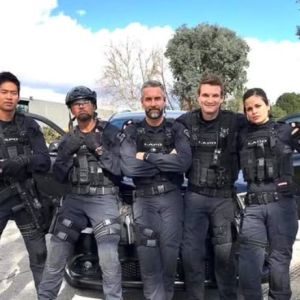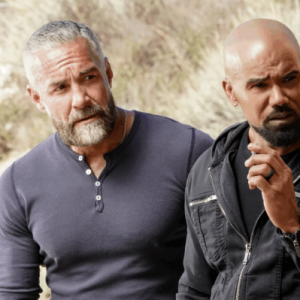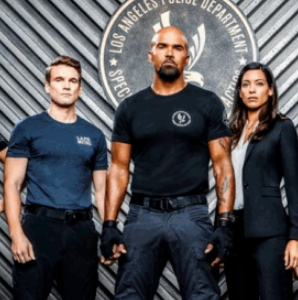For years, S.W.A.T. has been one of the most action-packed and emotionally gripping shows on network television. With Shemar Moore leading the charge as Daniel “Hondo” Harrelson, the series built a loyal fanbase that fought tooth and nail to keep it alive through multiple cancellation scares. Now, even as the original show winds down, Sony Pictures Television isn’t ready to let go of this valuable property. Instead, they’re preparing a brand-new offshoot to keep the franchise alive, prompting an examination into Sony’s business strategy, creative reasoning, and fan expectations behind this significant move.
One primary reason for Sony’s determination is the undeniable global success of S.W.A.T. While U.S. ratings have faced their ups and downs, the series consistently enjoys strong international distribution. Action dramas, especially those featuring elite tactical units, high-stakes missions, and themes of justice, translate seamlessly across diverse cultures. Sony clearly recognizes this widespread global appeal, understanding that ending S.W.A.T. entirely would mean leaving significant revenue and invaluable brand momentum on the table.
We are currently in the age of franchises, a “new TV gold rush” where expanding successful properties is paramount. Just as NCIS, Law & Order, and the Chicago series have successfully expanded into multiple, interconnected shows, Sony views S.W.A.T. as fertile ground for similar growth. A new spinoff, or “offshoot,” offers several strategic advantages: it allows for fresh storytelling by introducing new characters, settings, and missions; it ensures franchise longevity, keeping the brand alive and relevant long after the original cast might move on; and it leverages a built-in audience, as existing fans of the original series are highly likely to tune in to see what comes next in the universe.
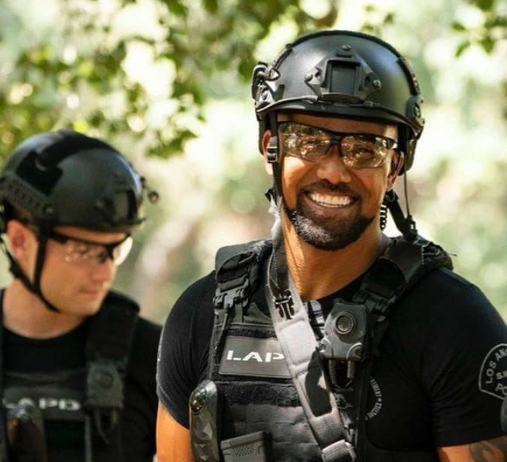
The question naturally arises: why not simply continue renewing S.W.A.T. as it is? The answer lies in a complex mix of logistical and creative factors. Firstly, contracts and budgets become increasingly prohibitive; keeping the entire original cast together for many more seasons can be exceptionally costly. Secondly, creative fatigue is a real risk; after numerous seasons, writers can find themselves struggling to generate fresh, compelling stories that maintain the series’ high standards. Finally, network decisions play a role; while CBS, the network, might hesitate to keep investing in the same format, Sony, as the production studio and rights holder, possesses the flexibility to pivot to a new vision, ensuring the franchise’s continuity under its own terms.
By launching a new offshoot, Sony effectively achieves the best of both worlds. They honor the legacy of the original series while simultaneously starting with a clean slate, free from established continuity constraints. This approach allows them to introduce entirely new characters and storylines without the challenging task of erasing or diminishing Daniel “Hondo” Harrelson’s significant legacy. Essentially, it provides a chance to strategically rebrand the series for a new era without sacrificing the immediate name recognition and goodwill already established by the S.W.A.T. brand.
A crucial consideration for the offshoot’s success is the towering shadow cast by Shemar Moore’s Hondo, who has been the undisputed face of the franchise. The question of whether a new squad can successfully carry the torch without him is significant. Sony, however, appears confident in this possibility, though they also acknowledge that keeping Moore involved in some capacity—perhaps through cameos, guest appearances, or even in a producing role—could significantly ease the transition for loyal fans and help bridge the gap between the old and new iterations.
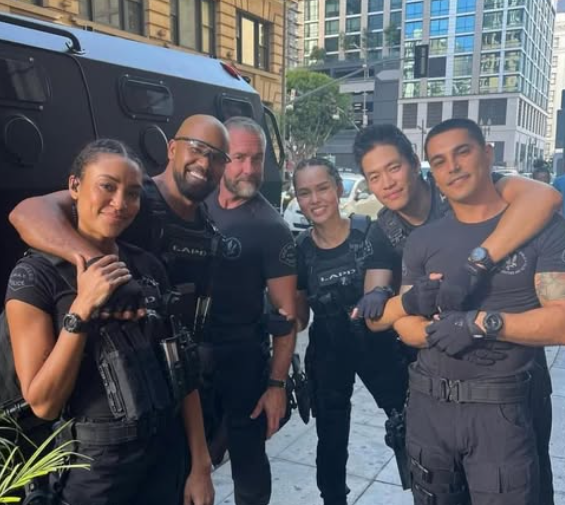
While Sony has remained tight-lipped about specific details, several plausible directions exist for the offshoot. One strong possibility is a New City, New Squad approach, relocating the action to another major American metropolis such as New York, Chicago, or Miami, allowing for new urban backdrops and distinct local challenges. Another exciting avenue could be an International Focus, envisioning a global tactical unit tasked with tackling worldwide threats, which would broaden the scope and appeal of the show even further. A Legacy Storyline could feature protégés or younger recruits who are directly inspired by Hondo’s leadership and the original team’s ethos, providing a direct narrative link. Lastly, an Anthology Style could be adopted, featuring different squads across various seasons, offering maximum flexibility and storytelling potential. Each of these directions presents unique opportunities to expand the S.W.A.T. universe while retaining its core appeal.
In pursuing this strategy, Sony isn’t reinventing the wheel but rather following a proven playbook employed by other successful television franchises. For instance, NCIS successfully spun off into multiple shows like NCIS: Los Angeles and NCIS: New Orleans, each with unique settings and character dynamics. Similarly, the Law & Order universe has repeatedly revived and expanded itself with various iterations and reboots. Even CSI transitioned effectively into CSI: Vegas, adeptly blending beloved legacy characters with compelling newcomers. These examples demonstrate that the formula for successful offshoots works consistently when executed thoughtfully and strategically.
Sony’s long-term vision is clear: they are playing the long game with the S.W.A.T. franchise. Crucially, Sony Pictures Television owns the rights to S.W.A.T. outright, not merely CBS. This pivotal distinction means Sony possesses the autonomy to continue creating content under the powerful S.W.A.T. banner, even if the broadcast network ultimately decides against further seasons of the original show. By proactively developing an offshoot, Sony secures direct control over the franchise’s future, unlocking numerous avenues for continued growth and revenue. These include securing lucrative streaming deals for fresh content with major platforms like Netflix, Prime Video, or Hulu; expanding international distribution into new, eager markets hungry for U.S. action dramas; and generating additional revenue streams through merchandising and licensing opportunities, extending the brand’s reach far beyond traditional television viewership.
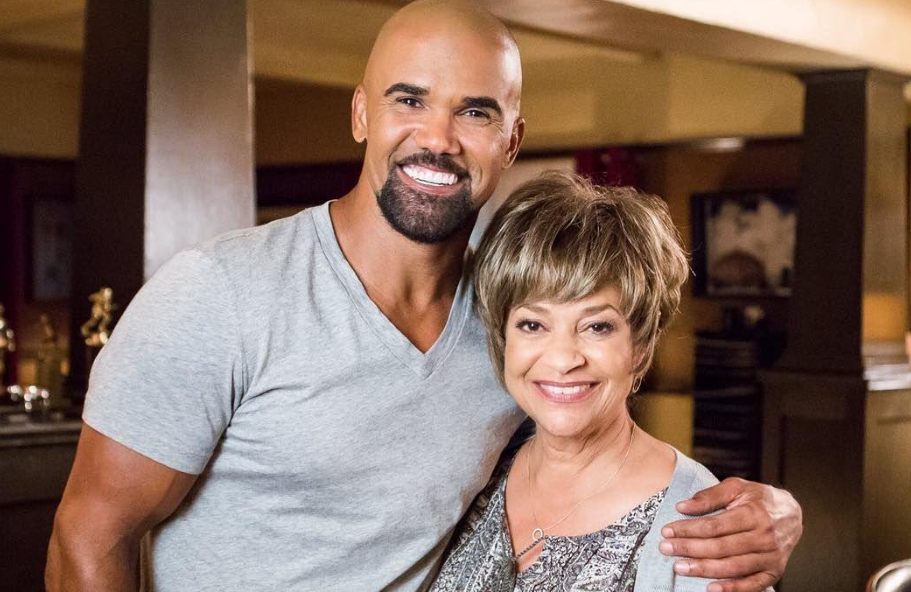
Fan reaction to this news has been predictably mixed, yet holds a thread of hope. Some dedicated fans express skepticism, fearing that an offshoot might feel hollow or lack the authentic spirit without Hondo and his beloved squad. Others, however, are cautiously optimistic, viewing it as a vital chance to keep the essence and adrenaline of S.W.A.T. alive in a new form. Sony understands that the critical challenge will be to meticulously balance this sense of nostalgia for the original with innovative new ideas to capture a fresh audience.
Of course, the path ahead for the offshoot is not without its hurdles. Sony must overcome the challenge of winning over loyal fans, particularly those whose primary allegiance rests solely with Hondo and the original team, who might initially hesitate to embrace new characters. The creative team also faces the formidable task of creating truly compelling new characters and dynamics that can stand on their own, given that the heart of S.W.A.T. has always resided in its strong squad camaraderie and interpersonal relationships. Furthermore, the offshoot must skillfully avoid constant, unfavorable comparisons to its highly successful predecessor, establishing its unique identity while still honoring the brand’s established values.
The timing for this strategic pivot feels particularly opportune. With the original show reaching what appears to be its natural narrative conclusion, now is the ideal moment for Sony to launch a new iteration. Had the offshoot been introduced too early, it might have caused confusion among the existing fanbase; conversely, waiting too long risked losing crucial momentum and fan engagement. Therefore, striking while the fanbase remains actively engaged and invested makes sound business and creative sense.

Ultimately, Sony’s decision to pursue an offshoot boils down to a fundamental truth: S.W.A.T. is more than just a successful television series—it is a robust and recognizable franchise. By strategically shifting gears into an offshoot, Sony is making a significant bet on the brand’s inherent ability to endure, evolve, and expand into a much larger, long-running universe. This move underscores Sony’s deep faith in the franchise’s enduring appeal. While the original squad may be stepping aside, the immersive world of tactical units, high-stakes missions, and complex moral dilemmas that define S.W.A.T. is far from over. The offshoot represents not an ending, but a strategic rebirth—a powerful opportunity to tell fresh stories while profoundly honoring the rich legacy that came before. For fans, this is undoubtedly a bittersweet but ultimately exciting moment, where the faces may change, but the adrenaline, the themes of brotherhood, and the unwavering pursuit of justice that define S.W.A.T. are poised to remain vibrantly intact.

